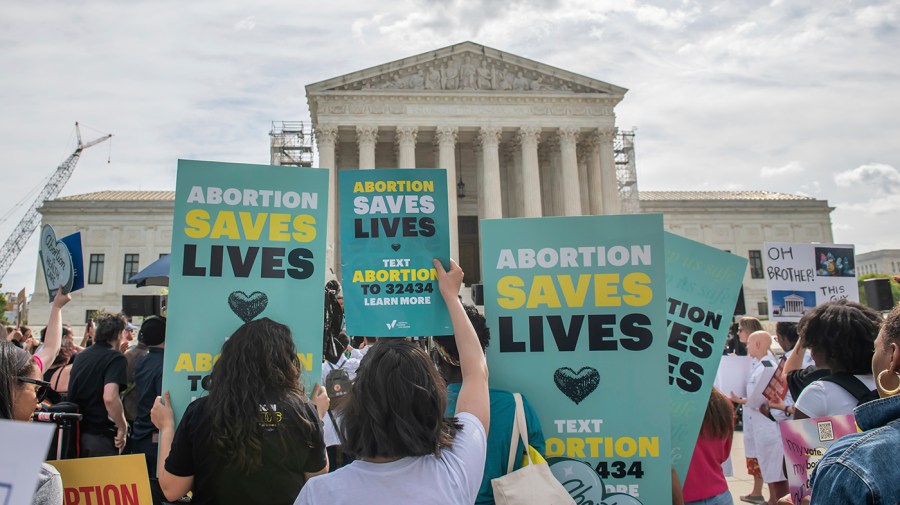Two women filed federal complaints against Texas hospitals they allege refused to terminate their ectopic pregnancies, which led to both women losing a fallopian tube, compromising their future fertility.
Abortion is banned in Texas, but terminating an ectopic pregnancy, where a fertilized egg implants in a fallopian tube instead of the uterus, is explicitly allowed under state law. An ectopic pregnancy is never a viable pregnancy and can be deadly for the pregnant patient if not treated quickly.
Both women in the complaints recounted how they nearly died after two separate hospitals turned them away out of fear of violating the state’s anti-abortion law. In Texas, a physician who provides a prohibited abortion faces up to life in prison, loss of medical license, and at least $100,000 in fines.
“Thus, some clinicians have been reluctant to provide medical intervention for a suspected or presumed ectopic pregnancy,” the complaints state. “They are doing so out of concern that, if their diagnosis is incorrect, termination would be a prohibited abortion that could result in criminal and civil penalties.”
The two complaints were filed by the Center for Reproductive Rights with the U.S. Department of Health and Human Services. They argue that the hospitals violated the Emergency Medical Treatment and Labor Act (EMTALA), a nearly 40-year-old law that requires hospitals receiving federal funds to provide stabilizing care, including abortions, to patients with emergency medical conditions or transfer them.
Hospitals must provide the care regardless of patients’ insurance status, mental illness or other underlying issues that a hospital might use to turn them away.
Patients for years have needed to file complaints with state health agencies, but the administration earlier this year streamlined the process so patients can file complaints directly to the Centers for Medicare and Medicaid Services.
The Biden administration invoked EMTALA in the wake of the Supreme Court decision that overturned Roe v. Wade. The administration said state laws or mandates that employ a more restrictive definition of an emergency medical condition are preempted by the federal statute.
That guidance has been challenged by red states, including Texas, that say the administration’s interpretation runs counter to their own laws banning abortion.
Even though Texas law explicitly allows doctors to terminate ectopic pregnancies, it doesn’t require it, and doctors remain wary of treating patients with pregnancy complications.
“It’s impossible to have the best interest of your patient in mind when you’re staring down a life sentence,” Beth Brinkmann, senior director of U.S. litigation at the Center for Reproductive Rights, said in a statement. “Texas officials have put doctors in an impossible situation. It is clear that these exceptions are a farce, and that these laws are putting countless lives in jeopardy.”
The U.S. Supreme Court earlier this year declined to say that Idaho’s abortion ban trumps the EMTALA requirement, but a federal appeals court found that Texas hospitals cannot be required to provide life-saving abortions.
The Biden administration has already appealed that ruling to the Supreme Court. The court will likely make a decision about whether to hear arguments in the fall, allowing it to rule after the November election.

